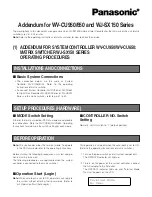
C H A P T E R
S e n d d o c u m e n t a t i o n c o m m e n t s t o m d s f e e d b a c k - d o c @ c i s c o . c o m
20-1
Cisco MDS 9000 Family Troubleshooting Guide, Release 3.x
OL-9285-05
20
Troubleshooting IP Storage Services
This chapter describes how to identify and resolve IP storage services problems that might occur in the
Cisco MDS 9000 Family products. It includes the following sections:
•
Overview, page 20-1
•
Initial Troubleshooting Checklist, page 20-3
•
IP Issues, page 20-5
•
FCIP Issues, page 20-9
•
iSCSI Issues, page 20-35
•
iSCSI TCP Performance Issues, page 20-48
•
iSLB Issues, page 20-58
Overview
Using open-standard, IP-based technology, the Cisco MDS 9000 Family IP Storage (IPS) module
enables you to extend the reach of Fibre Channel SANs. The switch can connect separated SAN islands
through IP networks using FCIP, and allow IP hosts to access Fibre Channel storage using the iSCSI
protocol.
The IPS module allows you to use FCIP and iSCSI features. It supports the full range of features
available on other switching modules, including VSANs, security, and traffic management. The IPS
module can be used in any Cisco MDS 9000 Family switch and has eight Gigabit Ethernet ports. Each
port can run the FCIP and iSCSI protocols simultaneously.
FCIP transports Fibre Channel frames transparently over an IP network between two Cisco MDS 9000
Family switches or other FCIP standards-compliant devices (see
Figure 20-1
). Using the iSCSI protocol,
the IPS module provides IP hosts access to Fibre Channel storage devices. IP host-initiated iSCSI
commands are encapsulated in IP, and sent to an MDS 9000 IPS port. There, the commands are routed
from the IP network into a Fibre Channel network, and forwarded to the intended target.
















































